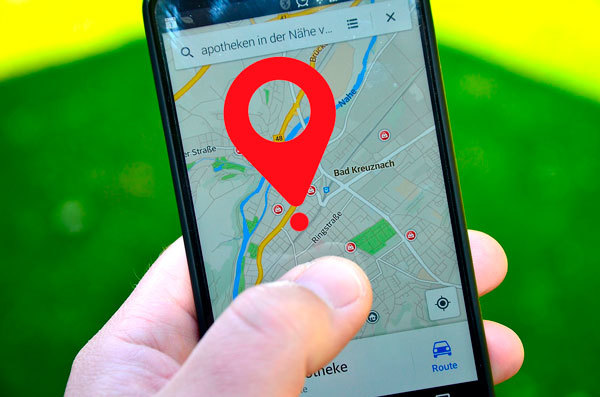- Tricks: This is how Google Maps works with augmented reality
- Driving Google Maps already points to road radars
- Security: All the ways Google spies on you (and how to avoid it)
In 2011, and as part of the novelties of the fifth version of the iOS operating system, Apple launched the "Find my friends" application. Still anchored in the years of "skeumorphism" (the design trend that tried to imitate real objects in the user interface), it was presented as a sewn light brown leather notebook that today we would consider an offense to good taste.
In 2011, however, the debate about revolved around its design but its purpose. What Apple proposed was an app with which to know the location of friends and family at all times, using the phone's GPS or the WiFi location system in the case of the iPad. It was not the first app of this style but its default inclusion in the operating system of the iPhone and iPad raised doubts about its scope. "A simple way to meet friends? Sure. Evil? Very possibly," summed up the Cult of Mac website.
Of course, the application had several mechanisms to protect user privacy. It was necessary to give permission to a family member or friend so that he could see our location and this permission could be temporarily restricted. This information also was only accessible to the parties involved, Apple did not have access to it, but in 2011 the feeling was that we were getting too close to dangerous terrain.
Today, many of those fears seem to have disappeared. We live in an era where we constantly share the location. Unknowingly, many times, with large corporations looking for more data to feed more detailed profiles that improve the effectiveness of the ads. Knowing it, on other occasions, when we send for example the location by WhatsApp to a friend. The very act of looking at someone's location is losing its "voyeuristic" quality. We believe we have the right to know where on the map the pizza we have just ordered and the route that the deliveryman who brings it home is.
Consequently, the attitude towards "Find my friends", which in iOS 13 has been renamed "Find", has also changed. "I have convinced my friends to share their location with me indefinitely. The idea is that I can wake up and see where they are. When we make dinner plans, I can see them exactly turning the corner on the way to the restaurant. I have created a friendship perfect, like in the movies: we can meet easily and at any time, and our stories come together in a coherent drama, "explains writer Kaitlyn Tiffany in a recent piece for The Atlantic.
"Find" is installed by default on iOS but, as we indicated before, nobody can check your location if you have not given permission before. In the app you can configure who can request to share the location, disable the function if it has been previously activated and select which device is the one that sends our location in case we have two active phones, or an iPad and an iPhone, for example. If there is no active data connection or WiFi, the device - as is logical - cannot send its location.
Although in Android there is no "official" app to perform this function, since 2017 the Google Maps application allows to do it in a similar way. It is possible to share our position on the map with a contact, indefinitely or temporarily and even know the battery status of the associated device.
The name change in "Find", in any case, foreshadows a future in which the real-time location of people, pets and objects will have a more relevant role. "Find" now combines the functions of "Find my friends" and "Find my [device]", which allowed you to search for Apple products, such as iPhones, iPads, Macs or AirPods that belonged to the user. Rumors suggest that Apple is also launching smart tags that can adhere to all kinds of products to find them using the app.
According to the criteria of The Trust Project
Know more- Apple Inc.
GadgetsApple announces a new MacBook Pro and sets the Mac Pro launch date
GadgetsAirPods Pro: the reasons you will want the new Apple headphones
CybersecuritySmart City Epo World Congress: Smart City Expo hosts a record edition inspired by urban advances

